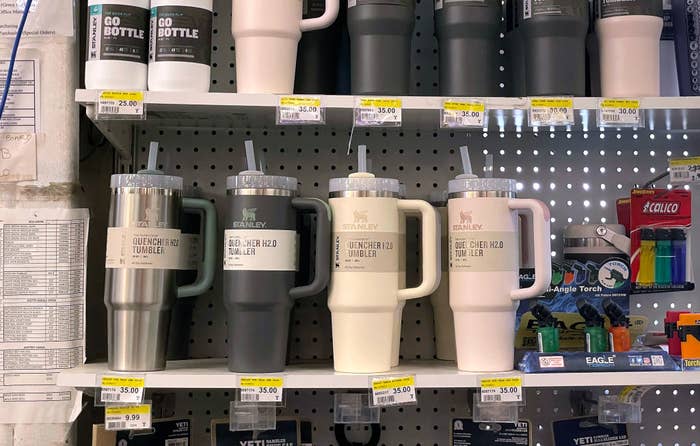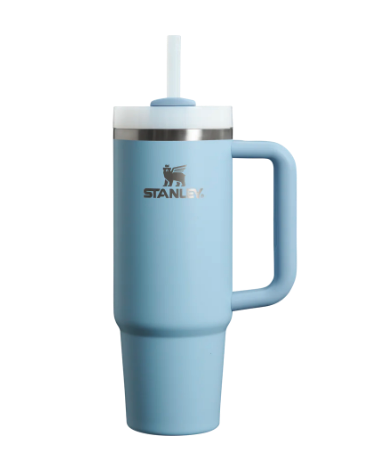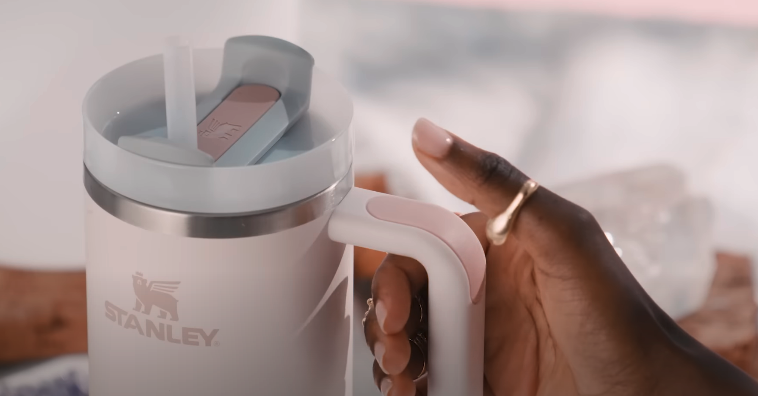Stanley 1913, the company behind the super viral sensation "Stanley Cups," responded to claims their products contain lead or pose a risk of lead poisoning.

If you've scrolled for five seconds on social media or celebrated Christmas with my mother, sister, and sister-in-law, you would know that everybody is going wild for these Stanley tumblers.
The craze has reached new heights to the point that all versions of the tumblers, including Hydro Flask and Owala, have become a must-have.
Followers everywhere use hashtags like #WaterTok and #StanleyTok to show off their flavorful drink recipes and accessorized cups on social media.
But, in addition to the pastel-colored Stanley Cup craze, folks have begun posting videos claiming they're using at-home tests to see if there's any lead in their Stanley products. Many people received mixed results, as it's unclear which parts of the products they're actually testing.

According to Today, a Stanley spokesperson responded to these claims, admitting that "Yes, lead is used in the manufacturing process, but the product needs to become damaged in order to expose the lead."

There is a circular barrier made of stainless on the bottom of the "Quencher" that covers a pellet that contains lead. However, the pellet (which "seals the product's vacuum insulation") can't be accessed unless the stainless steel barrier comes off.
While this can occur, the spokesperson claims it's "rare." He added, "Our engineering and supply chain teams are progressing on innovative, alternative materials for use in the sealing process."
In a separate statement to WCNC, Stanley 1913, the parent company of the viral products, responded, "Every Stanley product meets all U.S. regulatory requirements" and "We seal our vacuum-insulated stainless steel products with an industry-standard pellet that includes some lead. The pellet is completely enclosed by a stainless-steel cover, making it inaccessible to consumers."
It didn't take long for the reactions to this news to start pouring in, and folks definitely have much to say about it.
"The food that we eat here in the US is worse than that lead in the cup," a TikTok user wrote.

"Oh well, if I go of lead poisoning, at least I will go hydrated," another TikTok user wrote.

Another user wrote, "This isn't a big deal. The lead isn't in the cup part that holds liquid & it's likely in any cup that is double insulated like Yeti & others."

